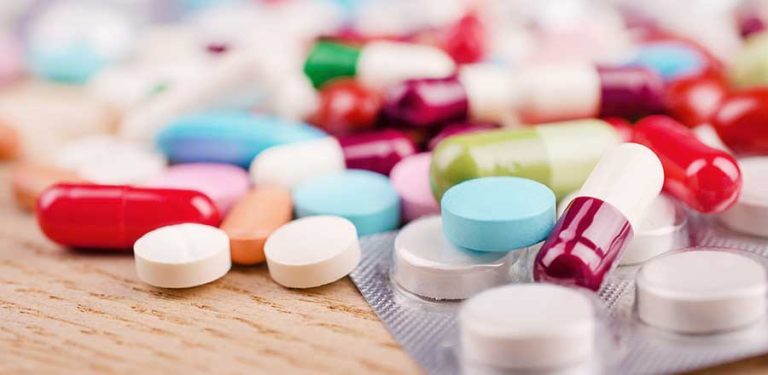Being a Pharmaceutical Science trainee
An STP trainee gave us their thoughts on training to become a Clinical Scientist in Pharmaceutical Science.
- Programme
- STP
- Role
- Trainee
What does Pharmaceutical Science involve?
Pharmaceutical Science is a specialty involving the preparation and manufacture of medicines. These medicines then make their way to patients to treat several different conditions. The overarching principle of the specialty is to ensure that patients have access to safe and effective medicines by following a principle called good manufacturing practices.
The specialty is broken down into different modules/specialties:
Quality assurance and quality control: These involve making sure that medicines made are fit for purpose and follow relevant standards. These two quality principles overarch all areas of manufacturing/preparation. Quality assurance involves establishing and maintaining a quality system that complies with regulatory bodies, like the MHRA (Medicines and Healthcare products
Regulatory Agency). It encompasses all activities related to the design, development, production, and distribution of medicines, including the establishment of quality policies, procedures, and processes, as well as the monitoring and evaluation of the quality system’s effectiveness. Quality control, on the other hand, involves testing and evaluating drugs to ensure they meet the required standards of quality and purity. It includes activities such as sampling, testing, and analysing medicines at various stages of the manufacturing process to identify and eliminate any defects or deviations from the established specifications.
Aseptic preparations: This involves using aseptic technique to dispense/prepare medicines so that they are ready to be administered intravenously on wards. Due to the route of administration, these preparations need to be sterile, hence the aseptic technique. Intravenous routes bypass the body’s immune system and enter the bloodstream so it could potentially be disastrous if these preparations were non-sterile. These medicines are prepared in controlled environments such as in clean rooms with isolators or laminar flow cabinets. Aseptic units commonly prepare chemotherapy drugs such as monoclonal antibodies and cytotoxic drugs.
Radiopharmacy: This is a highly regulated, specialised and technical area. It involves making radiolabelling drugs for diagnostic or therapeutic or theranostic purposes called radiopharmaceuticals. Radiolabelling involves a process of attaching a radioisotope onto a target molecule to form the radiopharmaceutical. These drugs are also administered intravenously and manufactured using aseptic techniques, to lead to a sterile final product. They are also made in controlled environments like isolators and laminar flow cabinets. However, unlike aseptically prepared medicines, radiopharmaceuticals are not used on patient wards but used in nuclear medicine who administer and carry out scans using gamma/PET cameras. Manufacture and administration are completed following radiation safety principles.
Production: This involves batch production of medicines with various dosage forms, such as oral liquids, ointments, creams and tablets. The dosage forms mentioned are usually not sterile, hence these products are not manufactured using aseptic technique. Production involves steps such as taking starting materials, weighing them, mix/blending and then filling into final containers. They are still manufactured in controlled environments but not as strictly as mentioned above. Sterile products can be made in production units, and this is achieved by using something called an autoclave. An autoclave uses a medium (typically highly pressured saturated steam) to kill microorganisms. Placing medicines into an autoclave is the final stage of making and the process of taking a non-sterile product and making it sterile in an autoclave is called terminal sterilisation.
My background before the Scientist Training Programme (STP)
Before the STP I had completed a BSc in Pharmaceutical Chemistry at QMUL. I graduated in 2022 and began the STP in September 2022.
My experience so far on the training programme
I have enjoyed it so far. The learning curve is steep and there is a lot to take in at the beginning, but as I have progressed through the course it has become enjoyable. The mix of academia and full-time work is a nice balance with ample opportunity for learning and development.
Final reflections
The STP thus far has been an informative experience, providing me with invaluable insights into the dynamic field of technical pharmacy. The program’s diverse modules, from Quality Assurance and Control to Radiopharmacy and Production, have exposed me to the multifaceted nature of this field. I’ve gained a deep appreciation for the aspect of overarching quality that ensures the safety and efficacy of medicines.
The hands-on experience gained through rotations in various clinical and non-clinical settings has been particularly enriching. I’ve witnessed first-hand the impact of pharmaceutical science on patient care, from the preparation of chemotherapy drugs to the production of radiopharmaceuticals for diagnostic imaging and their subsequent administration. I have also met multiple wonderful healthcare professionals and observed a number of multi-disciplinary teams working together with a shared goal. This has reinforced my passion for this field and my commitment to contributing to the production of therapies that improve patients’ lives.
The combination of academic study and full-time work has been challenging yet rewarding. The steep learning curve at the beginning was daunting, but the support of my colleagues and mentors has been instrumental in my growth. I’ve learned to apply theoretical knowledge to real-world scenarios, which turned out to be more difficult than originally anticipated.
Looking ahead, I’m excited to continue my journey in technical pharmacy. The STP has fostered a passion for this field and given me the confidence to consider pursuing a fulfilling career in the field. I’m grateful for the opportunity to have participated in this training program.
